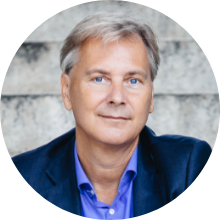Generation Z in Healthcare
Generation Z (born between 1995 and 2010) and the younger cohort of Millennials (born between 1980 and 1994) now comprise a significant part of our working world. They're stepping into the healthcare sector with fresh eyes and distinctive attitudes toward work-life balance. This shift is stirring conversation, raising questions across various fields, healthcare being no exception.
Work-life balance
Recently, a close friend who works as a senior researcher shared his observations about the young trainees he encounters. His primary concern was their perceived focus on work-life balance to the point where it affected their work ethic. He noticed that many seemed to take shortcuts in their work, exhibited overconfidence, and lack of respect for time-honored scientific processes.

In my own experience, I have noticed similar tendencies among medical students and residents. They are less willing to endure the demanding work schedules that were "the norm" of my early medical career. When I started my residency, working 60-hour weeks, including shifts at the hospital over weekends, was typical. It was a grueling routine, but it was accepted as part of becoming an experienced medical professional.
Avoiding blood, sweat and tears
While I am not suggesting we should return to such demanding schedules, it's disturbing to see a reluctance among young professionals to go the extra mile. It might mean spending a bit more time to master a new skill, observe an unusual procedure, or ensure their work is of the highest quality. Instead, there is a growing focus on completing tasks as quickly as possible rather than as accurately as possible.

Another concern is some young, relatively inexperienced doctors' high confidence levels. While confidence is a critical trait in medicine, it must be tempered by humility and acknowledging one's limitations. A failure to recognize these can lead to unnecessary risks (See also a previous blog post: Your medical career – Flying an F-16 jet plane).
However, it's important to underscore that these observations don't apply to every member of the younger generation. I've had the privilege of working with numerous dedicated and hardworking young professionals committed to their field. But will these be the ones that excel while those who don't will fail?
What research says
The question arises: Is Generation Z reshaping the work ethos, or are these merely the older generation's biased perceptions that fail to understand the evolving dynamics of the modern workplace?

A study conducted by The Workforce Institute1 presents some insightful data.
The Workforce Institute's report indicates that Generation Z believes they work harder than older generations. Yet, it remains to be seen whether they genuinely work harder or, as we have speculated, less. It could only be a matter of perception, with Generation Z having a lower "pain threshold for hard work." But one fact that we do know is that superiors often find them tough to handle.2
This could be linked to Generation Z's desire for greater control over their work schedules, a trend also noted in the Workforce study. They want a good balance between work and personal life, and having free time and a flexible schedule is very important. But does prioritizing "life" over "work" come at a cost, hindering them from climbing the ladder of success? Does this, in turn, open doors for those willing to commit more hours to work? On the other hand, what if strategic thinking takes precedence over hard work? Some suggest that Generation Z focuses more wisely on how to avoid work while simultaneously optimizing outcomes. Such a shift could indeed be disheartening for those who are fully committed.
Digital Natives
A key factor distinguishing Generation Z from earlier generations is the impact of technology. As the first generation to grow up fully immersed in the digital world, Generation Z possesses unique abilities. Their ease with technology is a powerful strength, enabling them to navigate the digital environment more effectively and fully utilize its benefits. Just think of artificial intelligence / Chatbots and how quickly the young generation is adapting.

However, this digital immersion has its downsides too. Despite their tech-savviness, Generation Z experiences lower mental well-being and higher stress levels, possibly due to their constant connectedness and the pressures that come with it.
As we look towards the future – 2030 to be precise, when Generation Z is predicted to make up 30 percent of the healthcare workforce – it's crucial to address these shifts. Will Generation Z's "more life, less work" ethos affect their career trajectories? How should their seniors, supervisors, and mentors effectively adjust their strategies to guide this new generation?
These are critical questions that need consideration and discussion, as they will shape the future of healthcare. As we delve deeper into these issues in our next Career Mentorship newsletter, we invite your thoughts and experiences.
Thomas Binder
P.S. If you found this article helpful, please share it with your network. Check out more on the topic of Medical Mentoring.
- Medial Career Strategy - The Darwin approach
- Patient Compliance – The Power of Motivational Interviewing
- Medical Career Strategy Tips
- Medical Skills – The Gambler
-
How to show what you know – 6 tips
- Give or Take how to build a career network
- Your Medical Career – Flying an F16 Jet plane
2) https://nypost.com/2023/04/25/employers-reveal-why-gen-z-is-hardest-generation-to-work-with/


